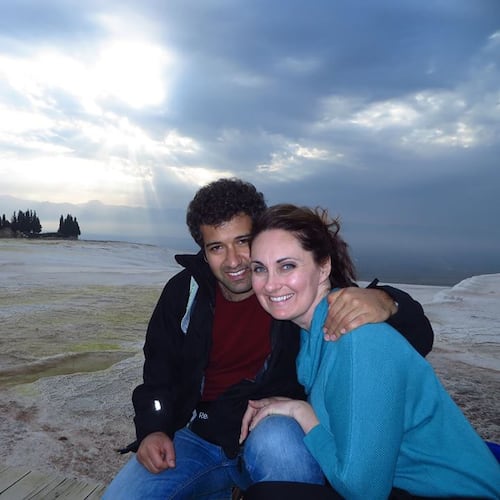A couple of dozen students and clergy members gathered Thursday at Mercer University’s Atlanta campus to participate in a prayer service for the more than 200 Nigerian school girls who were kidnapped a month ago by a group of militant Islamists.
Mercer doctoral student and Nigerian native Eniabitobi Kuyinu organized the service that included prayers and hymns offered by university administrators and area religious leaders.
The prayer service came a day after President Barack Obama notified Congress that a drone and 80 military troops had been sent to the neighboring country of Chad to help in the search for the girls. The leader of the group Boko Haram is using the girls as a bargaining chip, threatening to sell some of them into slavery if the government doesn’t release detained militants. The kidnapping has garnered worldwide attention and outrage toward the militants.
In Nigeria, Kuyinu ran a shelter for women and girls that had been victims of sex trafficking and forced prostitution. “Knowing who Boko Haram is, we’ve seen how they butcher people,” she said. “The (social media campaigns and rallies) are good, but I said the only thing that can help us is community prayer.”
Kuyinu began the service with a video featuring a rolling list of the names of the girls. Cards with the names of 180 of the girls were laid out on auditorium stairs for participants to take a few and offer prayers.
“We are told that we should be people of hope, yet as each day passes, hope becomes that much harder,” said Richard Swindle, senior vice president for Mercer’s Atlanta campus. In his prayer, Swindle asked that despite their captivity, each girl receive “tiny moments of peace.”
The Boko Haram group began its current round of violence in 2009, John Campbell, a senior fellow with the Council on Foreign Relations and a former U.S. ambassador to Nigeria, said during a recent media call on the the Nigerian kidnapping. The attack on schools, he said, is a reflection of a cardinal principle of Boko Haram, which is that Western education is evil.
The group has tried for years to establish an Islamic state out of the country that is a mixture of different religions, mainly Islam and Christianity.
In addition to the religious differences, the country has been a hotbed of unrest for years due to the inequities between the northern and southern regions and perceived government corruption, said Wole Akinola-King, a Nigerian native and senior pastor of RCCG Grace Assembly Church in Stockbridge. King’s parents still live in Nigeria, and he plans to return there on a mission trip in July.
“I think God is finally ready to turn Nigeria around,” he said.
If the schoolgirls are found, there still is work to be done in Nigeria, said Chester Fontenot, Mercer’s director of Africana studies.
“Saying bring our girls home is wonderful and a wonderful sentiment, however, there are some deep-seated problems there that are not being discussed,” he said. “… So as long as you have abject poverty and deep government resentment, you have very fertile ground for groups like Boko Haram to operate.”
About the Author
The Latest
Featured


